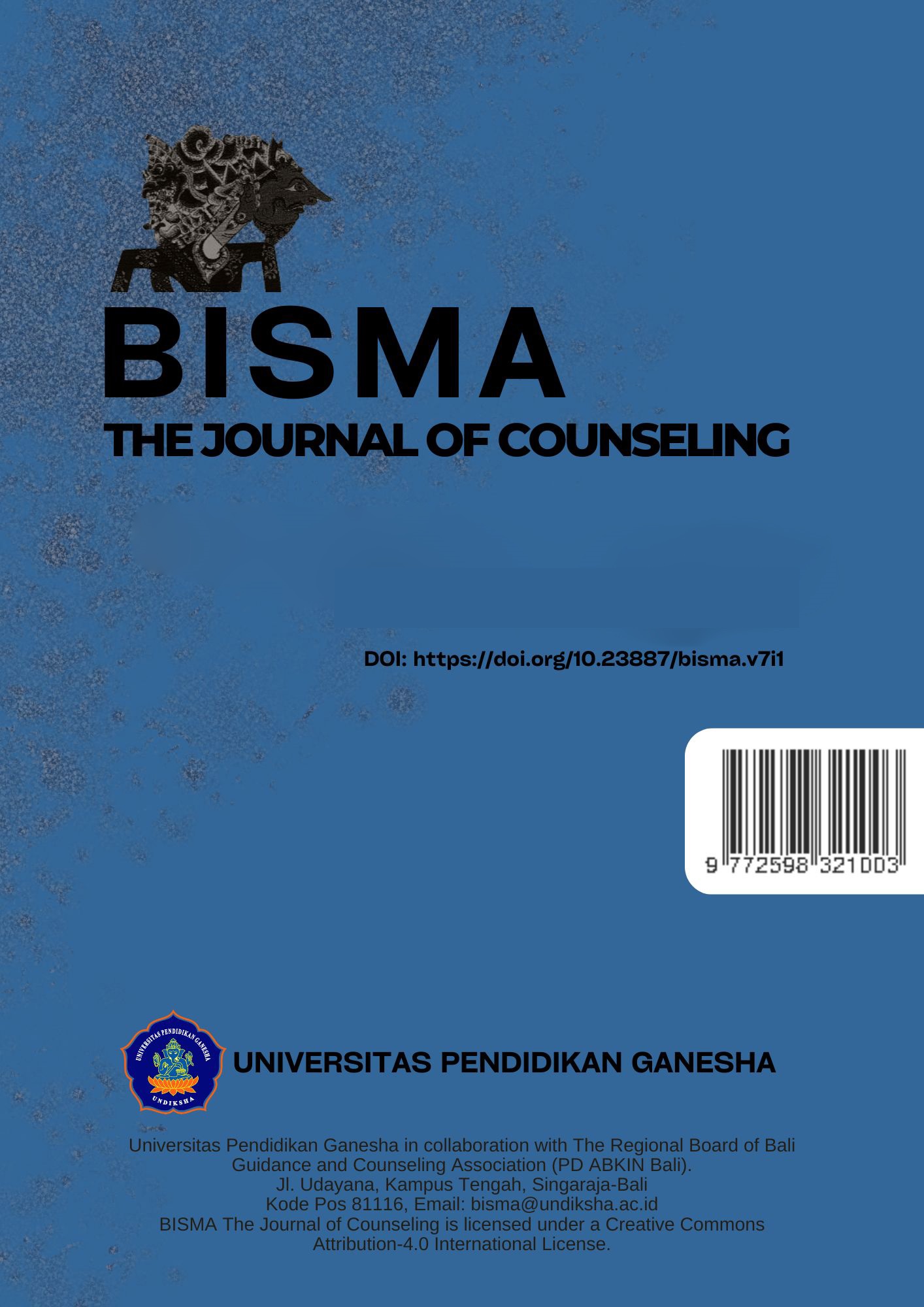Bibliotherapy Uses Kinemaster in Increasing Teenage Happiness from Single Parent Family
DOI:
https://doi.org/10.23887/bisma.v8i3.84282Keywords:
Bibliotherapy, Happiness, Single ParentAbstract
Divorce in Indonesia is currently increasing from year to year. Parental separation causes unhappiness in adolescents. Various pressures felt by adolescents have not been effective with conventional bibliotherapy to overcome it. This study aims to analyze the effectiveness of bibliotherapy using Kinemaster in increasing the happiness of adolescents in single parent families. This study uses a quantitative method of the Quasi Experiment Design type with a pretest posttest control group design. The population of this study was 40 adolescents at MTsS Muhammadiyah Kurai Taji. The technique used in this study was purposive sampling, a sample of 20 adolescents with the same characteristics was taken and then divided into 10 adolescents for the experimental group and 10 adolescents for the control group. The research instrument used a Likert scale model. Data analysis used the Wilcoxon signed ranks test and Mann-Whitney. The results of the study showed that first, there was a significant difference in the happiness of adolescents in single parent families in the experimental group before and after undergoing bibliotherapy using Kinemaster. Second, there was a significant difference in the happiness of adolescents in single parent families in the control group before and after being given conventional bibliotherapy. Third, there is a significant difference in the happiness of single parent family teenagers in the experimental group who underwent bibliotherapy using Kinemaster with the control group who were given conventional bibliotherapy.
Published
Issue
Section
License
Copyright (c) 2024 Neni Elvira Z., Firman

This work is licensed under a Creative Commons Attribution 4.0 International License.








